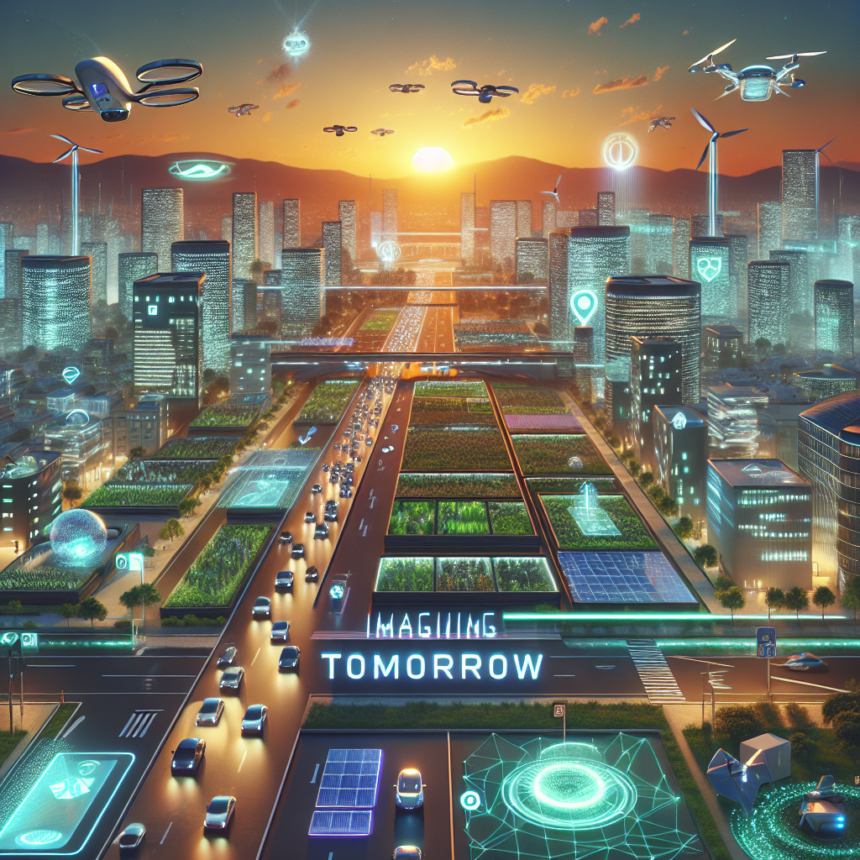As we stand on the cusp of unprecedented technological evolution, it’s fascinating to envision how emerging technologies will reshape our world. Innovations in fields ranging from artificial intelligence (AI) and biotechnology to renewable energy and robotics promise to transform everyday life, influencing everything from our work habits to our social interactions. Here, we delve deeper into the exciting technologies that will undoubtedly shape our future.
1. Artificial Intelligence (AI) and Machine Learning
AI is perhaps the most talked-about technology of the day. From virtual assistants like Siri and Alexa to advanced data analysis tools, its role is intrinsic to the unfolding digital landscape. Machine learning, a subset of AI, empowers computers to learn from data, thereby enhancing their analytical capabilities over time. This transformative potential extends far beyond simple tasks; in healthcare, for instance, AI algorithms can analyze complex data sets to identify diseases with remarkable accuracy, while in finance, they can detect fraud patterns and optimize trading strategies.
The future of AI promises even greater integration with our lives. Imagine self-driving cars becoming a common sight on the roads or AI-driven personal health assistants that monitor your physiological signals and suggest tailored diets and exercise plans. As these intelligent systems continue to evolve, their ability to make informed predictions will significantly influence industries and daily routines.
2. Biotechnology and Genetic Engineering
Biotechnology represents another frontier poised to revolutionize our world. This field, encompassing various disciplines such as molecular biology and genomics, enables scientists to manipulate living organisms at the genetic level. CRISPR, a groundbreaking gene-editing technology, allows for precise modifications to DNA sequences, opening doors for potential cures for genetic disorders and even cancer.
Looking ahead, biotechnological advancements could lead us to a more sustainable food supply, with lab-grown meat and bioengineered crops designed to thrive in adverse conditions. Moreover, the integration of AI with biotechnology will accelerate drug discovery processes, making it possible to design medicines targeted to individuals based on their genetic profiles, ushering us into a new era of personalized healthcare.
3. Renewable Energy Technologies
The increasing urgency of climate change necessitates a shift towards sustainable energy solutions. Innovations in renewable energy technologies, such as solar, wind, and marine energy, offer promising paths forward. Photovoltaic cells are becoming more efficient, and wind turbines are developing into larger and more cost-effective systems, making green energy both viable and accessible.
Moreover, breakthroughs in energy storage, like advanced battery technologies, are critical for overcoming the intermittency of renewable sources. The future landscape may very well be dominated by smart grids that optimize energy consumption using AI, transitioning us into a world where clean energy powers our homes, vehicles, and industries.
4. Robotics and Automation
Many sectors, including manufacturing, healthcare, and logistics, are witnessing a surge in automation. Industrial robots are performing intricate tasks traditionally carried out by humans, improving efficiency and reducing costs. Meanwhile, advancements in collaborative robots (or cobots) are enabling safer and more efficient human-robot interactions.
The future of robotics will likely see the proliferation of autonomous systems in our daily lives. Elderly care robots equipped with AI will assist in healthcare settings. Drones may deliver packages to our doorsteps, and smart home assistants will integrate with home systems, all contributing to a seamless living experience.
5. The Internet of Things (IoT)
As technology advances, our devices and everyday objects become smarter and more interconnected. The IoT encompasses a network of devices—from household appliances to wearable health monitors—all capable of communicating with each other. This interconnectivity provides seamless data sharing and insights that can optimize everything from home energy use to health tracking.
The future could witness a more integrated digital ecosystem, where AI processes data from various IoT devices, offering us recommendations for efficient living. Smart cities that manage resources intelligently to reduce congestion and pollution could transform urban living experiences.
Conclusion
Imagining tomorrow involves embracing the possibilities brought forth by these transformative technologies. While challenges such as ethical concerns, data privacy, and workforce displacement require careful navigation, the positive potential of these innovations is vast. By understanding and actively participating in the conversation around these technologies, we can help mold a future that benefits all of humanity.
FAQs
1. What is the most promising technology in the future?
- While many technologies show promise, AI and biotechnology stand out due to their potential to revolutionize industries and healthcare.
2. How will AI impact employment?
- AI automation may lead to job displacement in some sectors but create new job opportunities in others, particularly in tech, AI development, and healthcare.
3. What role will renewable energy play in our future?
- Renewable energy will be crucial in addressing climate change, driving us toward sustainable and eco-friendly energy sources.
4. Are there ethical concerns associated with genetic engineering?
- Yes, ethical concerns include the potential for designer babies, genetic privacy, and unequal access to biotechnological advancements.
5. How can I start preparing for a tech-driven future?
- Keep educating yourself on emerging technologies, consider re-skilling in tech-related fields, and embrace lifelong learning to remain relevant in a dynamic job market.
